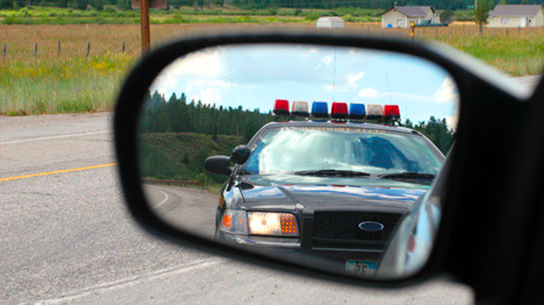I.D. Please
Here’s a hypothetical: You have been incarcerated for the past five years. You’ve had time to think about your actions, and you regret your poor choices everyday. Although you don’t wish to be in prison any longer, it has been a transformative experience, and you’re ready to get back on your feet. You’re ready to be there for your family. You’re ready to get a job and be a productive member of society.
When your release date rolls around, you realize your driver’s license has expired. None of the prison guards or administrators will help you get a new one, so you figure you’ll worry about that post-release. You get a job! You clean up your old car, which is still in the driveway. Driving is the only way to get to your job because you live in Birmingham, where the public transportation system is a joke. Everything is going smoothly until one day you sleep through your alarm. Your boss has no qualms about firing those who are late, so you take the risk of speeding to work.
A risk it was, indeed. You see the blue lights turn on in your rear-view mirror, and begrudgingly pull over to the side of the road. Now you’ll definitely be late for work. When the police officer asks for your license, you hand her your expired one and explain that you tried to register for a new license, but no one in the correctional facilities would help you, and you’ve held a full-time job since you were released. In other words, you haven’t had time to go to the DMV. The police officer raises her eyebrows when she hears you’re a former inmate and asks you to get in her car. You explain you’ll lose your job if you don’t show up to work today, but she tells you that you are under arrest and will be removed by force if you do not cooperate. You haven’t saved up enough money yet to pay the bail fee. You are convicted and sent to prison for another year.
This is one of the countless examples of how America’s correctional system sets up inmates for failure post-release. The Department of Justice acknowledges that all released inmates need a state ID, but all it can do is plead for states to take action, because this is not under their jurisdiction. Seventeen states (plus the District of Columbia) are in contact with the federal government about fixing this problem. Alabama is not one of them.
Identity theft is not a concern in this scenario. The Federal Bureau of Prisons confirms all prisoners’ identities before they enter a correctional facility. Inmates are actually given an ID card that is valid only within correctional facilities and halfway houses. Arizona, California, Illinois, Montana, Ohio, Utah, and Wisconsin have taken the obvious and easy approach of allowing prisoners to exchange their prison documentations for state IDs once they’re released. In Florida, Maryland, Minnesota, Mississippi, Missouri, Nevada, New Jersey, and Wyoming, every released prisoner is issued a state ID upon release where the prisoners do not need to take preliminary actions to acquire. Once again, Alabama does not appear on either of these lists.
I couldn’t find why Alabama specifically doesn’t issue state IDs; perhaps it’s the same reason several other states are hesitant to tackle this issue: it would involve changing state legislation. If so, getting a bill passed in Alabama would be a daunting challenge, because the state legislature has demonstrated that it would rather be “hard on crime” instead of “smart on crime,” a revolutionary approach to criminal justice in which incarceration is not always the answer.
Back to our hypothetical scenario. You can’t necessarily trust your parole officer to help you out before or after your unfortunate arrest occurs because he simply doesn’t have the time or resources to help you. The national recommendation is 60–75 caseloads per parole officer. In 2013, Alabama’s average was 193 caseloads per officer; in some rural parts of the state, it’s not uncommon for a parole officer to have 300 cases. This translates to an officer being able to spend approximately 10 minutes with client per month—not exactly the attentive and supportive service the parole system is supposed to provide. In fact, as of 2016, 34% of released prisoners received no supervision whatsoever from a parole after being released and returning to their communities; of these, nearly a third committed another crime within three years.
Unfortunately, driving with an expired license is a crime. If you’re found guilty, you would go back to prison for a year. Which would give you time to think some more. About how the system has failed you. You’ve served your time for your original crime. You did everything right—well, almost everything. A year goes by and you are released again. But this time you’re not hopeful or happy. You’re angry.
- Ada Cohen '18
